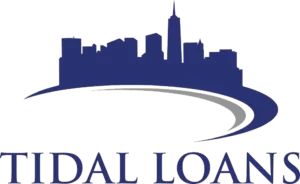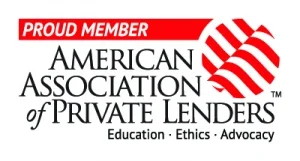Can a real estate investment property get a mortgage without showing the investor’s income? Yes, DSCR mortgage loans make this possible.
A DSCR mortgage loan is made for real estate investors. It doesn’t look at the borrower’s personal finances. Instead, it checks if the property can pay off its debts with rental income.

DSCR loans are becoming more popular because they are flexible. They offer quick approval based on the property’s cash flow and good rates. For more info, check out Tidal Loans.
Tidal Loans LLC helps investors find the right financing. Call 832-757-1262 or email info@www.tidalloans.com for help with cash flow mortgages.
Key Takeaways
- DSCR mortgage loans rely on property cash flow, not personal income.
- Minimum DSCR ratio requirements typically start at 1.0 to qualify.
- A good DSCR ratio for lenders is 1.25 or higher.
- The common down payment for DSCR loans is around 20%.
- Contact Tidal Loans LLC for tailored investment property mortgage options.
Introduction to DSCR Mortgage Loans
DSCR Mortgage Loans are gaining popularity among real estate investors. They focus on a property’s income potential, not the borrower’s income.
A debt service coverage ratio mortgage is based on the property’s DSCR. This ratio shows if the property can cover its debt. Lenders usually want a DSCR of 1.2 to 1.25 for approval.
DSCR mortgage loans work for many property types, from single-family homes to commercial buildings. They’re also good for non-qualified mortgage borrowers, like self-employed people or investors with complex incomes.
DSCR mortgage loans offer high loan-to-value ratios and lower interest rates. A DSCR above 1.2 can lead to easier approval and better terms. However, properties with low DSCRs might need higher down payments, interest rates, and fees.
Easy Street Capital has funded over 1,500 DSCR mortgages. This shows these loans are effective and widely accepted. They’re available in states like Arizona, California, Florida, Texas, and Washington. But, they’re not in Colorado, Minnesota, and New York.
For those interested in real estate investment through DSCR loans, knowing the basics is key. Understanding debt service coverage ratio mortgage calculations and requirements is essential. It helps secure good loan terms and boosts the property’s income.
What is a DSCR Mortgage Loan?
Understanding what is a DSCR mortgage loan means knowing it focuses on the property’s income, not the borrower’s. A DSCR loan is made for properties that make money.
A DSCR loan is special because it finances properties that earn income. It doesn’t check the borrower’s income or tax returns. Instead, it looks at the property’s Debt Service Coverage Ratio (DSCR).
This ratio compares the property’s net operating income (NOI) to its debt payments. For example, a property with $450,000 NOI and $250,000 debt payments has a DSCR of 1.8. This shows it’s financially healthy.
For residential properties, a DSCR of 1.2 or higher is good. For long-term rentals, it must be at least 1.0, the same as short-term rentals.
Investors like DSCR loans because they make financing easier. Companies like Easy Street Capital offer them without needing personal income proof. This is great for self-employed people or those with changing incomes.
These loans also have high loan-to-value (LTV) ratios. Long-term rentals can get up to 80% LTV, and short-term rentals up to 75%. Down payments can be as low as 20%, making them more flexible than regular loans.
In short, a rental income loan based on the Debt Service Coverage Ratio is a smart choice for investors. It focuses on the property’s cash flow, making it easier to get or refinance investment properties.
Benefits of DSCR Loans
DSCR loans offer many advantages, making them popular among real estate investors. They have less paperwork, allow for higher loan amounts, and can be used for multiple properties. These benefits help investors buy properties more easily and efficiently.
Lower Documentation Requirements
One big DSCR loan benefit is needing less paperwork than regular loans. These loans look at the property’s income, not the borrower’s income. This means:
- 25% less paperwork
- 15-20% faster approval
- Less focus on personal finances, making it easier for investors
This makes it simpler to get a commercial property loan or a non-owner-occupied mortgage.
Higher Loan Amounts
DSCR loans also let you borrow more money. With a DSCR of 1.25, you can get bigger loans. You can borrow up to $5 million, which is 20-30% more than usual. This gives investors more power to finance their investment property mortgage:
- Need a DSCR of at least 0.75
- Can do unlimited cash outs
Flexibility for Multiple Properties
DSCR loans also offer great flexibility for buying multiple properties. This is great for investors who want to grow their portfolios. The benefits include:
- Can finance many properties with one loan
- 10-15% higher approval rates than regular loans
- 30% faster closing, helping investors get started sooner
This flexibility suits many investors, from newbies to seasoned pros.
How to Calculate DSCR
Understanding the DSCR calculation is key for real estate investors. It involves the Debt Service Coverage Ratio. I’ll show you how to figure out this ratio.
Definition of Net Operating Income (NOI)
Net Operating Income (NOI) is crucial for DSCR. It’s the income a property makes after expenses. The NOI formula is simple: NOI = Gross Rental Income – Operating Expenses. This shows how profitable a property is before loan costs.
Debt Service Calculation
After finding NOI, we calculate the total debt service. This includes loan principal and interest. For home loans, it also includes taxes and insurance. For example, if NOI is $500,000 and debt service is $400,000, the DSCR is NOI / Debt Service = 1.25x.
Example Calculation
Now, let’s look at a real example. Say we have a property with these numbers:
- Annual Net Operating Income (NOI): $2,150,000
- Annual Debt Service: $350,000
The DSCR would be$2,150,000 / $350,000 = 6.14. This shows the property makes much more than it needs to cover debt.
Types of Properties Eligible for DSCR Loans
Knowing which properties qualify for DSCR loans helps real estate investors grow their portfolios. DSCR loans work for many types of investment properties. Each has its own rules and benefits.
Single-Family Rentals
Single-family rentals are a favorite among investors because they’re easy to manage and always in demand. DSCR loans make it easier to buy these properties. They offer flexible financial options and simple qualification steps.
Lenders check the rental income to ensure it meets the DSCR ratio of 1.2 to 1.5. This helps investors manage their loan payments reliably.
Multi-Family Properties
Investors looking for bigger projects might consider multi-family properties. These buildings have many units, each rented out separately. This setup creates different income streams.
The combined rental income is key for DSCR loan eligibility. Lenders usually want a DSCR of at least 1.25 for these properties. Higher ratios are even better. Loans can cover up to 80% of the property’s value, making them financially viable with the right strategy.
Commercial Properties
Commercial properties, like office spaces and retail spots, also qualify for DSCR loans. Their value is based on how much income they can generate. This income must meet the DSCR ratios set by lenders.
For commercial property loans, a DSCR of 1.2 or higher is usually required. These loans can range from $100,000 to $5,000,000. This offers a lot of capital for big investments.
Who Can Benefit from DSCR Loans?
DSCR loans are great for many investors. They look at the property’s income, not just the owner’s. This makes them perfect for those who don’t meet the usual mortgage rules. Let’s see who benefits the most.
Self-Employed Individuals
Self-employed people often struggle to get a mortgage because of missing W-2s. But, DSCR loans offer a way to own or invest in property. They focus on the property’s income, not the owner’s. This makes it easier for freelancers and business owners to grow their real estate.
This is thanks to a self-employed mortgage that’s more flexible. It helps them build a bigger real estate portfolio.
Real Estate Partnerships
Real estate partnerships also benefit a lot from DSCR loans. These loans let partnerships borrow under an LLC or shared entity. This makes it easier to invest in income-generating properties together.
With more investors buying U.S. homes, real estate investment partnerships are in a good spot. The loans have simple paperwork and good terms. This helps partnerships grow their property collections.
Seasoned Investors
Seasoned investors like DSCR loans to grow their portfolios. These loans look at the property’s income, not just the owner’s. This means investors can get loans for many properties, even if they have different income levels.
For example, a property with $50,000 in rent and $40,000 in debt has a DSCR of 1.25. This shows it makes money. This flexibility is great for investors who want to grow and make more money.
How to Qualify for a DSCR Loan
Learning how to qualify for a DSCR loan can make your investment smoother. I’ll cover the key criteria to meet, so you’re ready for your lender’s needs.
Minimum DSCR Ratio
The minimum DSCR ratio is key for a DSCR loan. It’s usually around 1.25 or more. This shows the property’s income can pay off its debts. A strong DSCR ratio means your investment is likely to be profitable and get good loan terms.
Credit Score Requirements
It’s important to meet the credit score needs for a DSCR loan. Most lenders want a score of at least 620. Keeping your credit history good can help get your loan approved faster and maybe even get you better rates.
Property Appraisal
A detailed property appraisal is crucial. It checks the property’s value and income potential. This helps figure out the loan-to-value (LTV) ratio, which should be 80% or less. A good appraisal not only meets DSCR loan requirements but also shows lenders your investment is solid.
Cash Reserves
Having enough cash reserves is also key. These funds cover unexpected costs like repairs and vacancies. They ensure you can keep making mortgage payments even when rent is low. Having enough cash reserves makes lenders trust you more, helping you qualify for a DSCR loan.
By knowing the requirements—minimum DSCR ratio, credit score, property appraisal, and cash reserves—you can prepare well for a DSCR loan. This sets you up for success in real estate investments.
How to Apply for a DSCR Loan
Getting a DSCR loan might seem hard, but knowing the steps can make it easier. These loans are great for self-employed people or freelancers looking to invest in real estate. They have different rules than regular mortgages.
Documentation Needed
To start, you need to collect some important documents. You’ll need:
- Loan application
- Credit report
- Bank statements
- Homeowners Insurance
- Entity documentation (if buying under an LLC)
- Appraisal report
- Title work
DSCR loans need less paperwork than regular mortgages. This makes the process quicker. They also don’t ask for your personal income, which is good for those with complex tax situations or who are new to being self-employed.
Loan Application Process
To apply for a DSCR loan, first, contact a lender. You’ll fill out forms, often online. You need a good credit score and enough cash saved up. The focus isn’t on your debt-to-income ratio, making it easier to get loans for more properties.
DSCR loans look at how well a property can pay its debts. Lenders want a DSCR of 1.2 or more. Some lenders, like Lima One Capital, start rates at 7.25% and need a 700 FICO score. Griffin Funding offers loans with a DSCR as low as 0.75%.
Approval and Closing
After you apply, the lender checks your property’s DSCR and your credit. The appraisal is key to this. If everything checks out, you get approved quickly.
Then, you sign the final documents and get the loan money. DSCR loans close faster than regular mortgages because of the simpler paperwork. Loans can be from $1 million to $5 million, with terms up to 30 years. Some lenders even offer 40-year fixed-rate loans.
In short, knowing what you need for a DSCR loan can help a lot. The process is different from regular mortgages but offers big benefits, especially for self-employed people and experienced investors.
DSCR Loans vs. Traditional Loans
DSCR loans and traditional mortgage loans have their own special features. They serve different needs of borrowers.
Income Verification
The income verification process is a key difference. DSCR loans look at the property’s rental income. They don’t need personal income proof, which is good for investors.
Qualification Requirements
DSCR loans are easier to qualify for. They focus on the property’s income and the borrower’s credit score. Traditional loans check more of your financial background.
Conventional loans need a bigger down payment, 5% to 20%. DSCR loans might ask for less.
Interest Rates and Terms
DSCR loans offer flexible rates and terms for real estate investors. But, they might have higher rates and penalties. Traditional loans have fixed or adjustable rates for homes.
Investors looking to buy many properties might prefer DSCR loans. They are flexible and close quickly.
Knowing the differences is key when deciding between DSCR and traditional loans. Each has its own benefits, depending on your needs and finances.
Innovations in DSCR Loans
The world of DSCR loans is changing fast. New ideas are making it easier for investors to get loans and earn more from their investments.
Interest-Only Options
Interest-only mortgage options are gaining traction in DSCR loans. They let investors pay only the interest for a set time, usually the first ten years. This boosts cash flow and gives more financial freedom.
Such options help real estate investors manage their costs better, especially when starting out.
Evolving Underwriting Standards
Underwriting standards for DSCR loans are getting better. Lenders now look more at the property’s income potential than the borrower’s finances. This is good for self-employed people and experienced investors.
By focusing on the property’s income, lenders can offer better terms and larger loans.
Technology and Automation
Technology and automation are key in DSCR loans. Automated loan processing makes the whole process faster and easier for everyone. Lenders like Easy Street Capital are using this tech to speed up loans and improve service.
Thanks to these changes, DSCR loans are more accessible. With interest-only options and automated processing, the market is adapting to new needs. This is changing how real estate investments are financed.
Challenges and Downsides of DSCR Loans
The drawbacks of DSCR loans are real. They come with challenges that borrowers must think about carefully.
Higher Down Payments
One big issue is the need for higher down payments, usually 20-30%. This is because lenders focus on property cash flows, not personal income. They want to reduce risk, so they ask for a bigger down payment.
This makes it harder for some to get these loans. They might not have enough money saved up.
Prepayment Penalties
Another big problem is prepayment penalties. These penalties can make it expensive to refinance or sell before the loan ends. It’s important to know about these penalties in your loan agreement.
They can really hurt your investment’s profits. So, it’s key to understand them well.
Property Management Concerns
Property management comes with its own set of risks. Vacancies, unexpected repairs, and tenant changes can all be problems. Good management is key to keeping cash flows steady and meeting loan payments.
So, it’s crucial to handle these issues well. This will help protect your investment.
In summary, investors should carefully consider these challenges against the benefits of DSCR loans. Knowing about the downsides like higher down payments, penalties, and management issues helps make better decisions. It’s all about smart financial planning.
Conclusion
DSCR mortgage loans are a great choice for real estate investors, especially those in rental properties. These loans use the property’s cash flow as the main factor. This makes them perfect for self-employed people and experienced investors who can’t show income like traditional loans require.
DSCR loans are known for their flexibility and the chance to borrow large amounts. They focus on the Debt Service Coverage Ratio (DSCR), which must be at least 1. This means the property’s income covers its debt, showing it’s financially stable. The ability to borrow more for valuable properties with fixed rates and long terms is a big plus.
However, DSCR loans also have their own set of challenges. They often require higher down payments and have prepayment penalties. Before jumping in, it’s crucial to check your finances, investment goals, and the property’s details. This way, investors can make the most of DSCR loans while handling the risks wisely.


